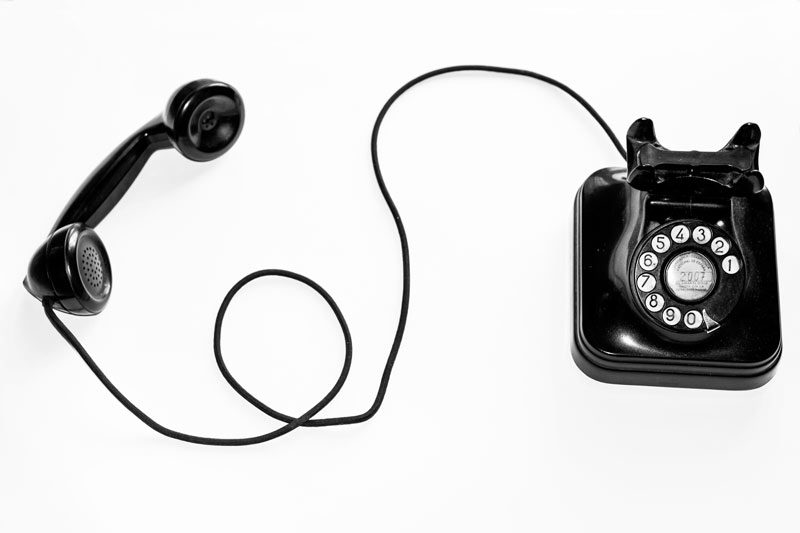
Without body language to show your interest and engagement, you have to rely on your voice to convey enthusiasm during a phone interview. Photo by Quino Al/Unsplash
A phone interview is like playing a real-life game in which the objective is to make a good impression on and connection with someone who can greatly influence your career and life — but you have to do it blindfolded! The lack of body language, social cues and visual feedback in such an interaction can make it challenging even for excellent communicators. Let’s take a look at four areas to focus on to deliver a successful phone interview.
Concise message
You should conduct extensive research on the golf facility just like you would for an in-person interview. The crucial difference is that you must be more concise and disciplined with your message in a phone interview, as it’s shorter than a regular interview (typically only about 30 minutes long).
Based on your research, identify three key points you want to be sure to get across during the phone interview, and practice being succinct in your answers. Your goal is to set yourself apart, so touching on three concise points that will distinguish you from the other candidates will go a long way in getting you to the next step in the interview process.
Setting
Be strategic and thoughtful about where you conduct a phone interview. Turn off all phone ringers. Be sure there’s no chance that a child, dog, doorbell or any other distraction could derail your momentum during the call. I also recommend using a landline if possible, to avoid the possibility of dropping the call. Have a glass of water on hand in case you need to wet your throat, and be sure to have your notes (including your three key points, written out) in front of you for reference.
I recommend having standard interview questions and your responses to them written out and in front of you during the phone interview, to help if you get nervous or forget a valuable point. This will also help you keep your answers concise rather than rambling if you try to improvise. Be sure to have a pen to jot down notes during the interview if needed, to ensure you’re fully answering the questions and to make note of any follow-up remarks.
Energy
Vitality must be projected for a phone interview to be successful. Without body language to show your interest and engagement, you must use your voice to convey your energy level. Stand or sit up straight when you’re talking to transmit confidence through your posture and voice inflection. Keep in mind that it’s perfectly OK to pause to gather your thoughts — you don’t need to fill any silence with verbal pauses.
As you practice for your interview, concentrate on expressing a genuine and strong interest in the job through your posture, the strength of your voice, and, yes, smiling. Even though the interviewer can’t see you, a positive facial expression does come across in a person’s voice. I suggest preparing for the interview by speaking aloud to yourself beforehand so you get used to hearing your voice in an empty room and can work on annunciation, voice inflection and facial expressions.
Follow-through
Prepare questions to ask should you be given the opportunity at the end of the phone interview. Develop a home-run closing statement to end the call on a high note, reminding the interviewer of those three key points that set you apart. Write down comments and your thoughts following the phone interview for use in preparing for the next step of the interview process.
Finally, mail a thank-you note — seriously. The objective is to differentiate yourself, and by mailing a thank-you note, you demonstrate professionalism and follow-through, which are sought-after qualities for any golf facility leadership position. Another idea for following up is to ask one or more of your references to call the facility to offer a recommendation of you.
Carol D. Rau, PHR, is a career consultant with GCSAA and the owner of Career Advantage, a career consulting firm in Lawrence, Kan., specializing in golf and turf industry careers. GCSAA members receive complimentary résumé critiques from Rau and her team; résumé, cover letter and LinkedIn creation for a reduced member rate; and interview preparation and portfolio consultation.